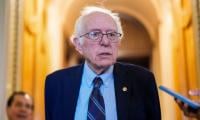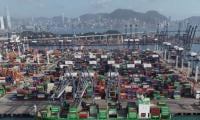Surging inflation
There seems to be no end to the surging inflation in the country. Let’s begin with petroleum prices which are likely to increase by yet another eight rupees per litre if the government decides to increase the existing tax rate. The government has been jacking up the petroleum levy with an unprecedented frequency for the past over three years but the way it has done so in the current year is mind boggling. A major cause of this tendency is rapid depreciation in the value of the rupee as its exchange rate keeps declining day by day. As the exchange rate comes down, the government ends up paying more to import oil and the people suffer higher inflation. The Oil and Gas Regulatory Authority (Ogra) and the Petroleum Division normally work out the increase in the price of petroleum products on the basis of tax rates and import prices which are directly proportional to the prevalent exchange rate. The same applies to other products such as kerosene and light diesel oils which are estimated to be in the same range due to the exchange rate loss incurred by the national exchequer and higher international oil prices.
If the government increases the petroleum levy by four rupees per litre, it may satisfy the IMF which has been demanding this move for revival of its programme. It is worth noting that the government has set an annual target of over 610 billion rupees revenue collection through the petroleum levy. That means the government planned to collect at least Rs50 billion per month from this account. The government is currently charging Rs5.6 per litre levy on petrol and Rs5.1 per litre on HSD. This is already back-breaking for the people as they are under the yoke of unbearable inflation even with this levy. Then there is the issue of the government charging another Rs9.3 per litre on petrol and Rs8.8 per litre on HSD. Now add to this Rs9 and Rs13 per litre GST on these two products and you have a formula for extraction of money from the citizens of Pakistan under various guises.
With the existing ex-depot price of petrol at Rs137.8 per litre, private transport and even small vehicle owners are finding it hard to travel to their businesses and places of work. Even rickshaws and two-wheelers have become a strain on domestic budgets, having a direct bearing on middle and lower-middle classes. Such high inflationary trends are impacting the prices of other household items such as groceries. The high fuel prices increase the cost of running threshers, tractors, and tube wells making agriculture produce expensive even before it reaches the market. It becomes more expensive when it reaches its wholesale outlets and even dearer when it finds its way to the consumers. Since flour mills also consume light diesel oil in large quantities, high diesel price affects flour rates too. The same applies to thermal power plants which end up paying more for the fuel and the circular debt keeps rising. The government must take up the issue of inflation in earnest, as it is creating a lot of hardships for the common people in the country.
-
 ‘Miracle On Ice’ Redux? US Men Chase First Olympic Hockey Gold In 46 Years Against Canada
‘Miracle On Ice’ Redux? US Men Chase First Olympic Hockey Gold In 46 Years Against Canada -
 Friedrich Merz Heads To China For High Stakes Talks In An Effort To Reset Strained Trade Relations
Friedrich Merz Heads To China For High Stakes Talks In An Effort To Reset Strained Trade Relations -
 Astronauts Face Life Threatening Risk On Boeing Starliner, NASA Says
Astronauts Face Life Threatening Risk On Boeing Starliner, NASA Says -
 Hailey Bieber Reveals How Having Ovarian Cysts Is 'never Fun'
Hailey Bieber Reveals How Having Ovarian Cysts Is 'never Fun' -
 Kayla Nicole Looks Back On Travis Kelce Split, Calls It ‘right Person, Wrong Time’
Kayla Nicole Looks Back On Travis Kelce Split, Calls It ‘right Person, Wrong Time’ -
 Prince William And Kate Middleton Extend Support Message After Curling Team Reaches Olympic Gold Final
Prince William And Kate Middleton Extend Support Message After Curling Team Reaches Olympic Gold Final -
 Nvidia CEO Praises Elon Musk, Calls Him An ‘extraordinary Engineer'
Nvidia CEO Praises Elon Musk, Calls Him An ‘extraordinary Engineer' -
 Shia LaBeouf's Mugshot Released After Mardi Gras Arrest On Battery Allegations In New Orleans
Shia LaBeouf's Mugshot Released After Mardi Gras Arrest On Battery Allegations In New Orleans -
 Timothee Chalamet Felt '17 Again' After Reunion With 'Interstellar' Director Christopher Nolan
Timothee Chalamet Felt '17 Again' After Reunion With 'Interstellar' Director Christopher Nolan -
 Conan O'Brien Speaks First Time After Rob Reiner's Killing
Conan O'Brien Speaks First Time After Rob Reiner's Killing -
 Giant Tortoise Reintroduced To Island After Almost 200 Years
Giant Tortoise Reintroduced To Island After Almost 200 Years -
 Eric Dane Drops Raw Confession For Rebecca Gayheart In Final Interview
Eric Dane Drops Raw Confession For Rebecca Gayheart In Final Interview -
 Trump Announces New 10% Global Tariff After Supreme Court Setback
Trump Announces New 10% Global Tariff After Supreme Court Setback -
 Influencer Dies Days After Plastic Surgery: Are Cosmetic Procedures Really Safe?
Influencer Dies Days After Plastic Surgery: Are Cosmetic Procedures Really Safe? -
 Eric Dane Confesses Heartbreaking Regret About Daughters' Weddings Before Death
Eric Dane Confesses Heartbreaking Regret About Daughters' Weddings Before Death -
 Nicole 'Snooki' Polizzi Reveals Stage 1 Cervical Cancer Diagnosis
Nicole 'Snooki' Polizzi Reveals Stage 1 Cervical Cancer Diagnosis



